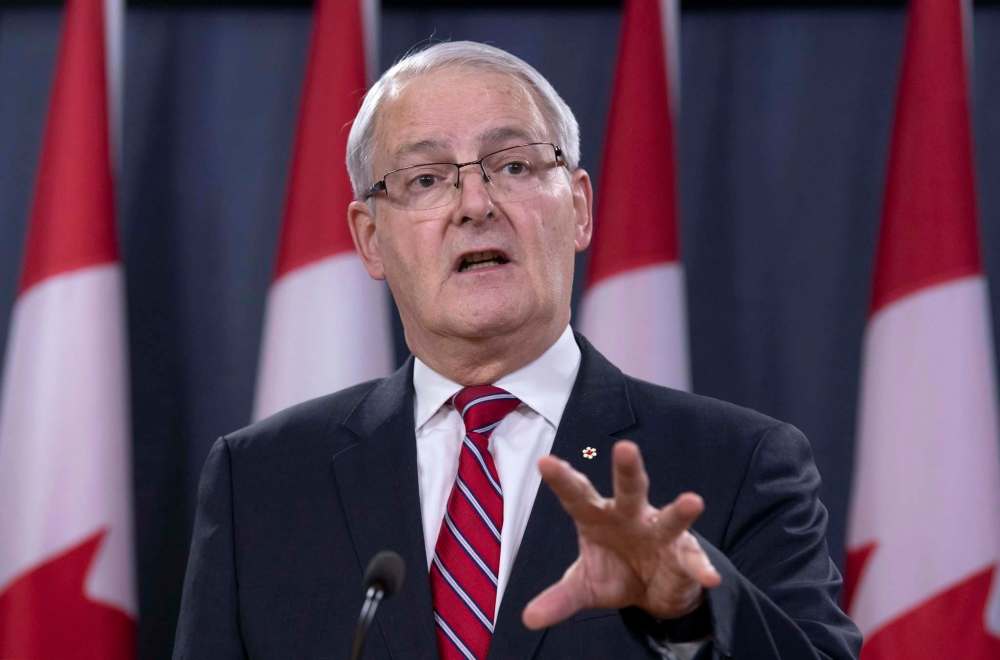Canada, Manitoba can support Afghan refugees
Read this article for free:
or
Already have an account? Log in here »
To continue reading, please subscribe:
Monthly Digital Subscription
$0 for the first 4 weeks*
- Enjoy unlimited reading on winnipegfreepress.com
- Read the E-Edition, our digital replica newspaper
- Access News Break, our award-winning app
- Play interactive puzzles
*No charge for 4 weeks then price increases to the regular rate of $19.00 plus GST every four weeks. Offer available to new and qualified returning subscribers only. Cancel any time.
Monthly Digital Subscription
$4.75/week*
- Enjoy unlimited reading on winnipegfreepress.com
- Read the E-Edition, our digital replica newspaper
- Access News Break, our award-winning app
- Play interactive puzzles
*Billed as $19 plus GST every four weeks. Cancel any time.
To continue reading, please subscribe:
Add Free Press access to your Brandon Sun subscription for only an additional
$1 for the first 4 weeks*
*Your next subscription payment will increase by $1.00 and you will be charged $16.99 plus GST for four weeks. After four weeks, your payment will increase to $23.99 plus GST every four weeks.
Read unlimited articles for free today:
or
Already have an account? Log in here »
Hey there, time traveller!
This article was published 31/08/2021 (1563 days ago), so information in it may no longer be current.
Manitoba can provide a safe place to settle Afghan refugees. This province has helped before in similar crises and has the experience to know how to best help international refugees.
The successful resettlement of about 1,200 Syrian refugees to Manitoba in 2015 and 2016 stands as an example of how Manitoba can help Afghans who are unable to return to their home country now that the Taliban resumed control.
The Syrian resettlement was successful largely because ordinary Manitobans stepped up, often organizing in community or church groups to privately sponsor refugees, or volunteering to enter personal relationships with arriving Syrians to acquaint them with essential aspects of Manitoba (gifts of tuques and long underwear were particularly appreciated when the newcomers faced their first blast of winter).

While individual Manitobans were commendably willing to extend down-home hospitality to Syrians, their efforts were only successful because of multi-sector support. Government funding boosted settlement organizations such as Welcome Place, and private-sector partners helped provide jobs.
That’s what Manitoba has learned about settling an influx of refugees. It took a united effort of volunteers, governments and employers working together to properly welcome the Syrians. Now, it’s Afghans who need the sanctuary Manitoba can provide.
Canada has pledged to resettle a total of 21,000 Afghan refugees, some who have already fled the country and are in refugee camps in Pakistan and other countries. Canada’s commitment will also include 5,000 Afghans who have already been airlifted to U.S. military bases in the Middle East and Europe, according to news reports on Tuesday.
Canada is being roundly criticized for responding slowly to the Taliban resurgence and for assigning scant staff to process the thousands of applications for help from Afghans with links to Canada. Foreign Affairs Minister Marc Garneau noted the thousands of people left behind include Canadian expats and many Afghan support staff who worked with Canada’s military and diplomats.
Regrettably, the issue doesn’t seem to be a major concern of the federal government, with Prime Minister Justin Trudeau having called an unnecessary election that sent politicians to the hustings to shake hands and pose for photo-ops instead of dealing with important issues such as the slipshod withdrawal of Canada from Afghanistan.While individual Manitobans were commendably willing to extend down-home hospitality to Syrians, their efforts were only successful because of multi-sector support.
As much as the Liberals might wish to dodge the topic, it’s the voters who can ensure Canada’s abandonment of Afghans gets its due as an important election issue. Campaigning politicians typically say they want to listen to the people, which makes the weeks leading up to the Sept. 20 election a window for voters to make politicians commit to specific ways to help Afghan refugees.
The strategies should include adjusting the caps on government-assisted and private sponsorship, partnering with Canadian Afghan organizations that already exist, and boosting immigration staff to minimize red tape and speed approval.
Once the government process is expedited, Manitobans can take it from there. Previous experience has shown resettling refugees means providing a strong network of support as the newcomers are immersed into a new culture, a new language and schools and workplaces that seem foreign at first. They need housing. They require donations of money, furniture and time from volunteers willing to extend hands of friendship.
The motivation for Manitobans is clear: these Afghans are trying to escape the grip of the Taliban, which aims to impose its interpretation of Islamic law that includes extreme repression of women, girls and people who identify as LGBTTQ+. Such people are desperate for a safe home, and Manitobans have the experience and the compassion to welcome them.





